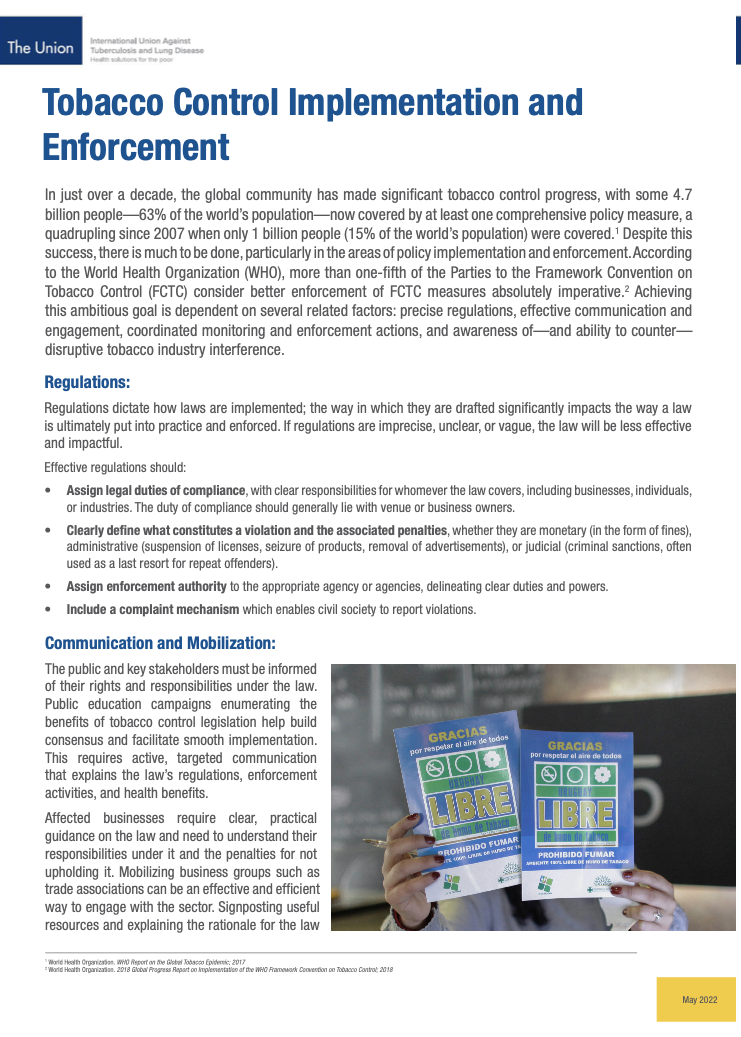According to the World Health Organization (WHO), more than one-fifth of the Parties to the Framework Convention on Tobacco Control (FCTC) consider better enforcement of FCTC measures absolutely imperative. Achieving this ambitious goal is dependent on several related factors: precise regulations, effective communication and engagement, coordinated monitoring and enforcement actions, and awareness of—and ability to counter—disruptive tobacco industry interference.
Recent Abstracts
Clean Air in Jakarta: Practice, Gaps, and Possibilities Toward LEZ (Low Emission Zone)
Public Attitudes Towards Alcohol Policy: South Africa
Quality Assurance and Improvement Framework for Medical Certification of Cause of Death and…
More Data Better Health: Climate and Health in the Legal Amazon
Mais Dados Mais Saúde: Clima e Saúde na Amazônia Legal
Health Taxes Action Guide
Opinión pública frente a la política de alcohol: Colombia
Public Attitudes Towards Alcohol Policy: Colombia
2024 Activity Report – Brazil
Estimação do impacto de diferentes cenários de redução do consumo de álcool no…
